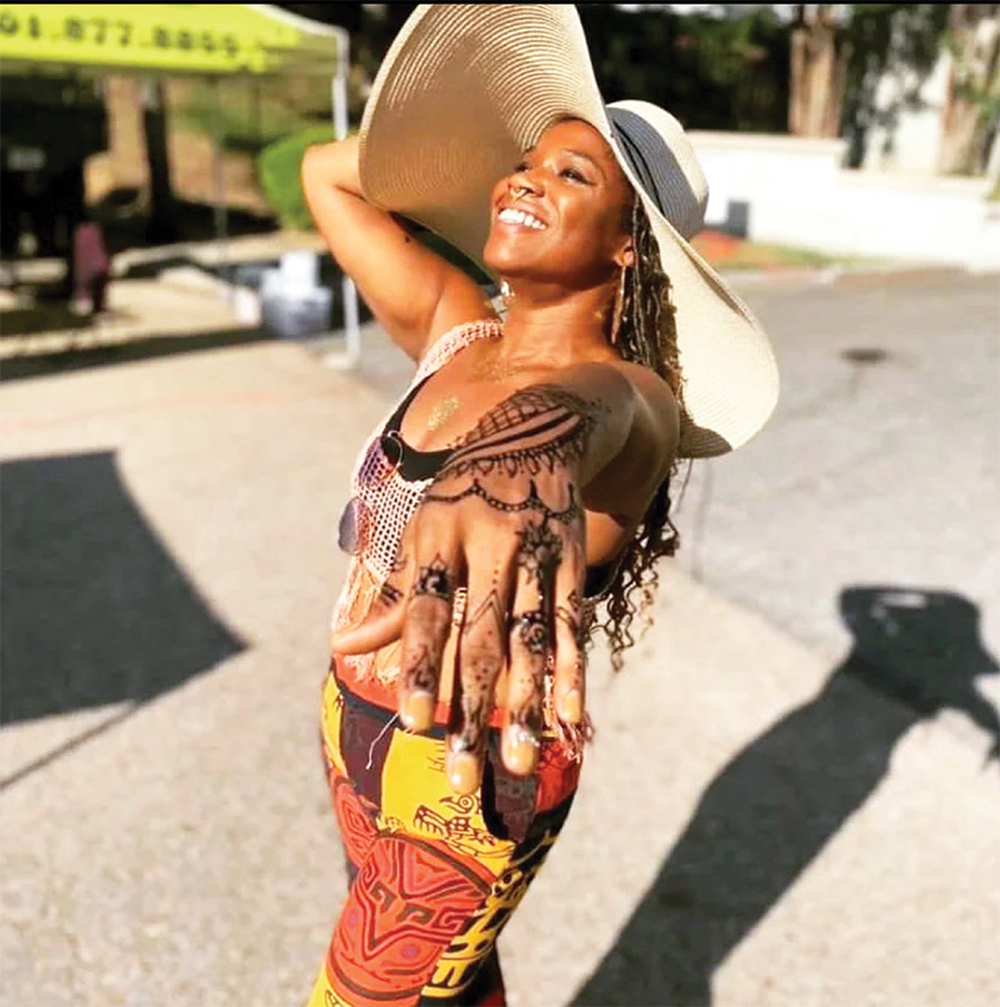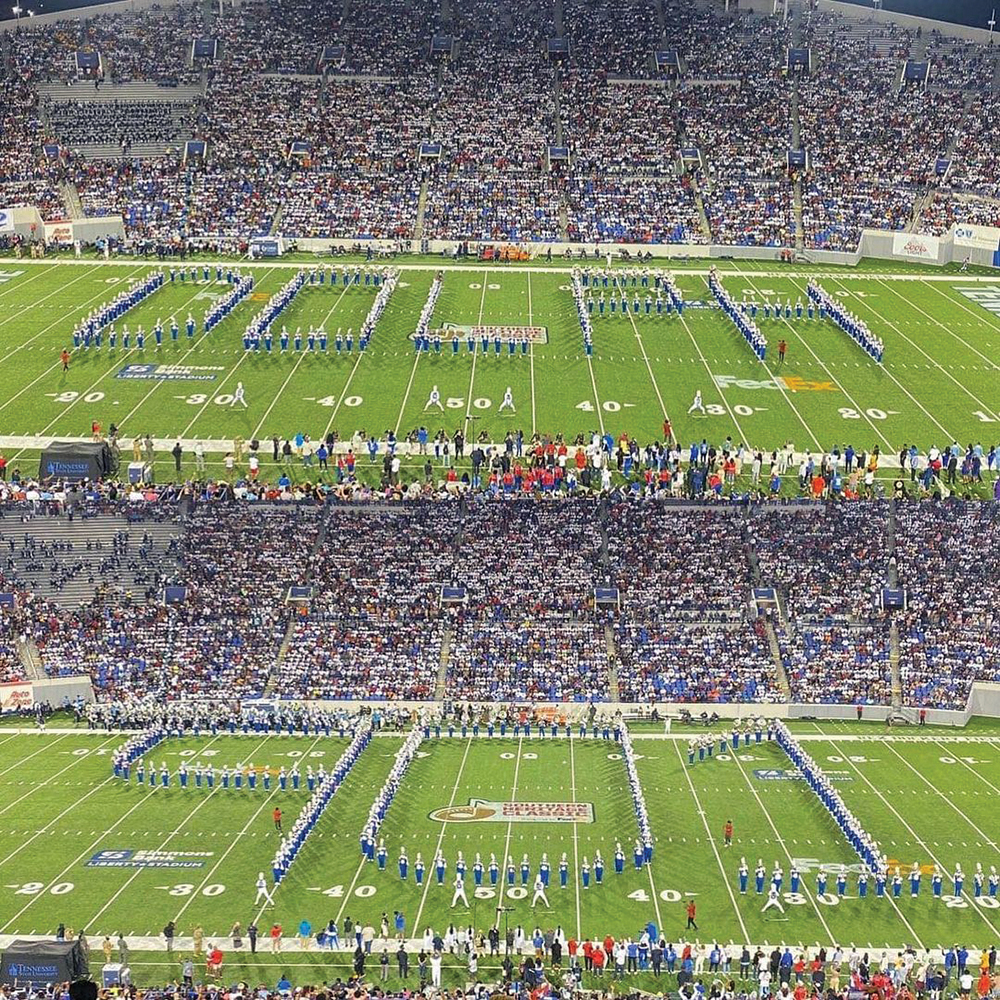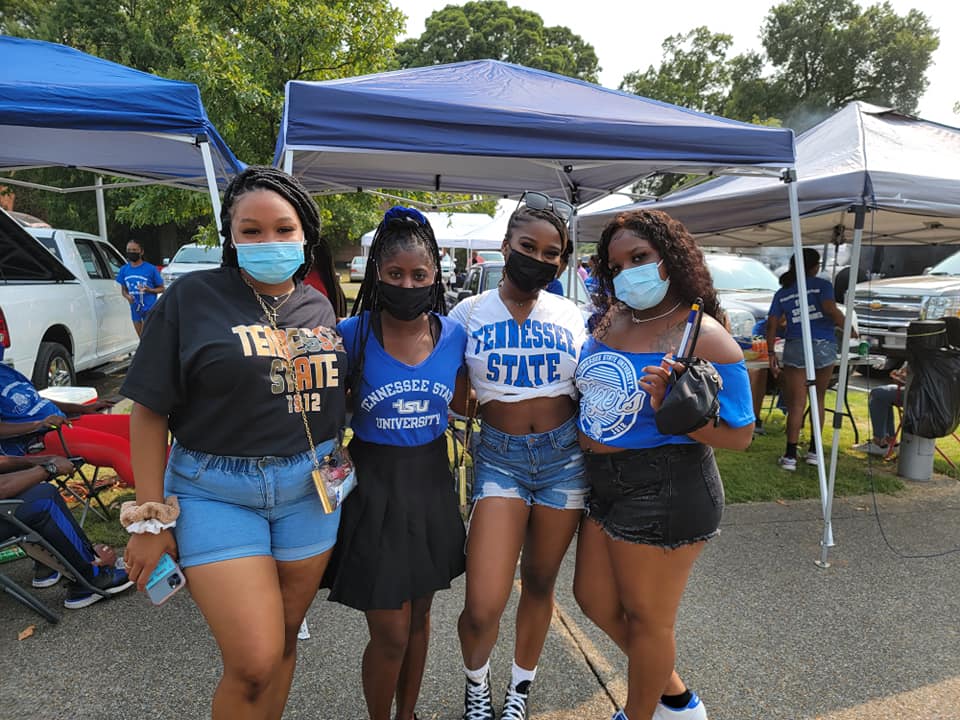
Drew Richmond
Most Tennessee State University students traveling 40 West to Memphis during the second week of September were planning to attend the Southern Heritage Classic football game. Not Botti Denton. He was driving 200 plus miles from Nashville to Memphis for a different purpose.
Meanwhile Michael Howse, Sr. requested a half-day off work.
Howse, Sr. and Denton were headed to Memphis University School to hear Owls Senior lineman, Drew Richmond, considered the number one recruit in Tennessee, announce his decision to attend the University of Mississippi and play for the Rebels next fall. It was an event they could not miss.
“No matter how far I had to drive,” said Denton, who is a freshman at TSU.
“I had to be there,” said Howse, Sr. of attending Richmond’s media conference. “Drew is a special kid.” If only his son, Michael Howse, Jr. could have been there as well. But Howse Jr. passed away on September 7, 2009 with a lung illness. His best friends, Richmond and Denton, understandably took the news hard. Not only would they no longer be able to hangout and laugh and talk with Howse, Jr., they would not be able to live out their dreams of playing in the NFL together one day.
Richmond and the Owls ran out on to Hull-Dobbs field preparing to face Liberty Magnet three days after he made his announcement. The band began to play. Richmond, as he always does, lifted his hands to the sky. Two fingers on one, just one on the other. 21. The number House Jr. wore when he played. “Every time I run out to that field I throw up 21,” said Richmond. “I’m living his dream.”
The dream was nearly Howse, Jr’s. and Denton’s alone. The two developed a love of football at such a young age. Howse, Sr. played in high school and one day decided to take his little boy, who had no interest in football, to a game and expose him to football. The conversion was painless. “He said, ‘dad I can do that,’” recalled Howse, Sr. Not only could he do it, he could do it well. Running the ball was his forte. Like Howse, Jr. running back was also the position of choice for Denton.
The two decided to join a little league football team. Both were smart enough to realize their job would be much easier with a strong offensive line. So they took it upon themselves to add recruiting to their responsibilities. Richmond was their primary target. What they thought would be an easy task turned out to be difficult sale.
“I was like every other kid in Memphis and wanted to play basketball,” said Richmond. He was good at basketball. Taller and stockier than everyone else on the court, Richmond was hard to stop. Walking away from it all would be tough. But not being able to be with his friends would be tougher. “I knew if I wanted to hang around the guys I would at least have to give it a try, said Richmond.” So he did.
Denton and Howse, Jr. could not celebrate just yet. Although he was one of the bigger guys on the team, Richmond wanted to play one of the skill positions. “He wanted to be like us,” laughed Denton of Richmond’s attempt. “So he tried tight end. He tried it, but by the end of the season we told him that wasn’t going to work.” Richmond’s role as a lineman began.
Suddenly the job of running the ball for the little league Ellendale Bears SYS became a cushy one. “Running behind Drew is easy,” admitted Denton. “By the time we got to our fourth year he was really really good. He just continued to get better.” And so did their friendship.
And going to separate middle schools would not change that. Denton and Howse, Jr. attended White Station. Richmond enrolled at MUS. By this time they were brothers. Howse, Jr. and Richmond were side by side at church. The threesome talked about how things would be in the pros one day. Maybe Richmond would block for one of them or maybe both as he did in the little leagues.
In 2009 the two middle school programs, White Station and MUS, met up on the football field. Howse, Sr. recalled the game. “Michael (Jr.) scored two touchdowns. MUS won. And after the game he and Drew were congratulating one another.” It was his son’s last game.
Howse, Sr. remembers his son complaining of shortness of breath. “He was never sick, never missed days out of school.” But there was House, Jr. saying he was in no mood to go to class. “We thought it was strange and took him to visit a doctor,” Howse Sr. added. They came home but things did not get better. So he took his son to the hospital where Howse, Jr. spent his last four days on earth.
Richmond will never forget the day. September 7, 2009. “This is why I choose this day to announce where I will be attending college,” he said. “If not for (House, Jr.) I would not be in this position.” Plus the fact that he grew to reach ‘6-“5 in height and 320 pounds did not hurt.
Richmond and Denton will never forget the dream. “We all started something together, even though Michael (Jr.) wasn’t able to make it and my football career ended after high school, we carry the dream through (Richmond),” said Denton. “And I’m in school studying business so we’ll all make it one way or the other.”
“I carry the dream for (Howse, Jr.), Botti and a lot of other guys,” claimed Richmond. And if he’s fortunate enough to hear his named called at Radio City Music Hall in New York one day during the NFL Draft, he can expect at least two people to be in attendance.
“I’ll be there,” said Denton. “No matter how far.”
“Wouldn’t miss it for the world,” insisted Howse, Sr. “Wouldn’t miss it for the world.”
Jamie Griffin is a Memphis native. He attended the University of Memphis where he received his Masters in Journalism. He’s also a former Television Sports Director. He spends his spare time, you guessed it, watching sports.






